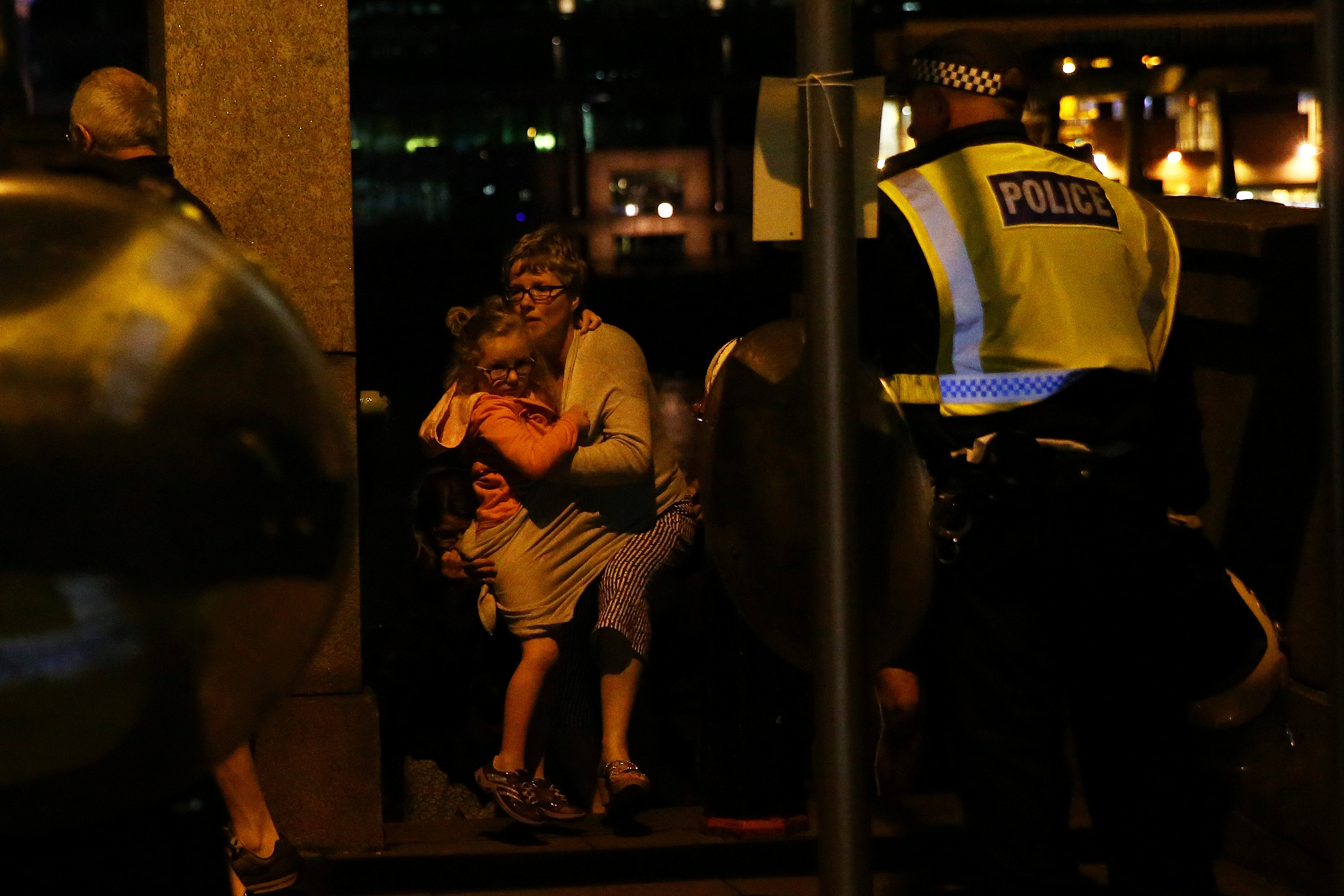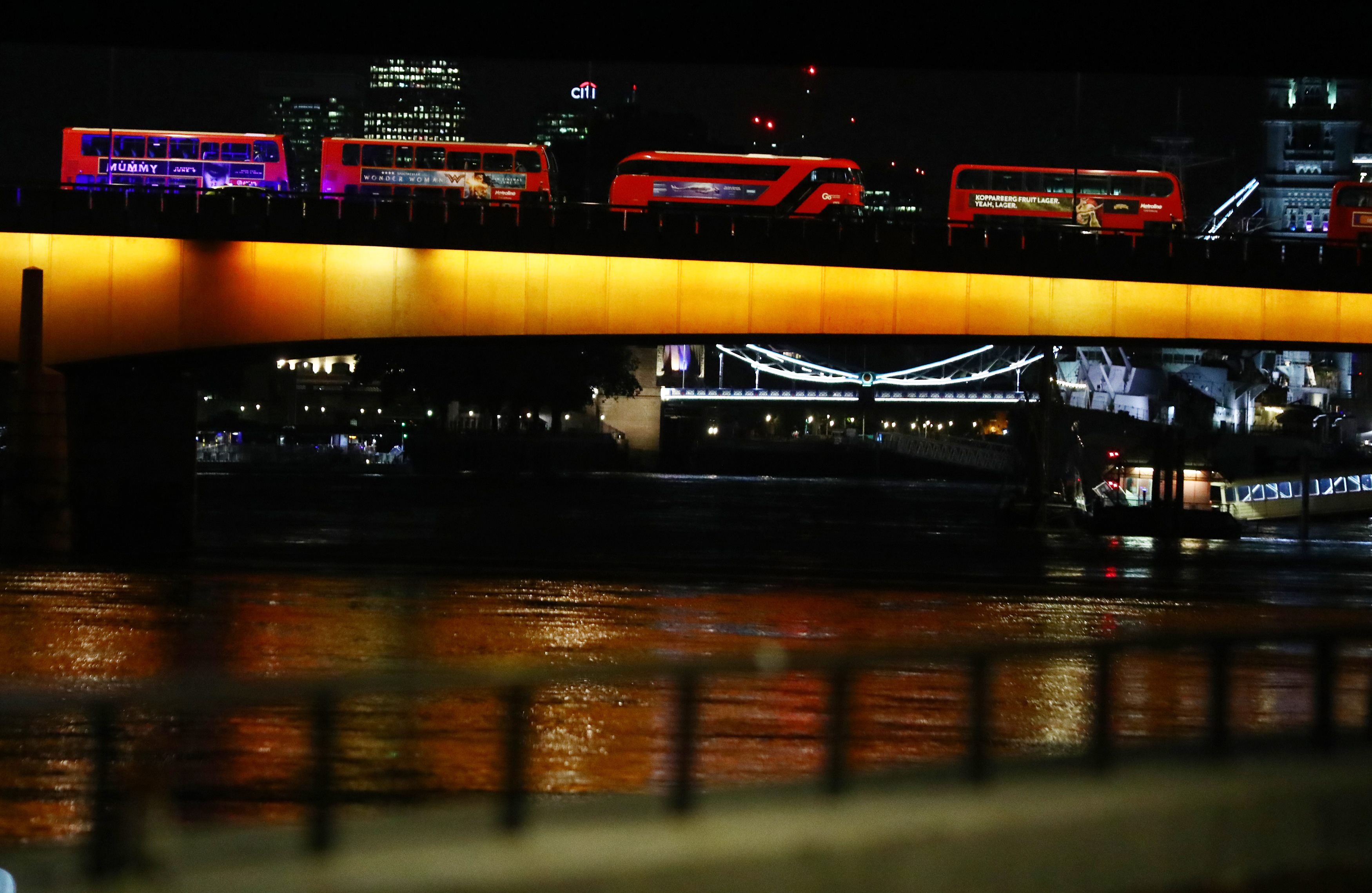
By Michael Holden and Andy Bruce
MANCHESTER, England (Reuters) – Police scrambled to close down a network around the Manchester suicide bomber with arrests in Britain and Tripoli on Wednesday, as details about the investigation were leaked to U.S. media, infuriating authorities who fear a second attack is imminent.
British-born Salman Abedi, 22, who was known to security services, killed 22 people at a concert venue packed with children on Monday.
Authorities believe he had help in building the bomb, which photographs published by the New York Times showed was sophisticated and powerful, and that his accomplices could be ready to strike again.
Manchester police arrested five men and one woman on Wednesday, bringing the total held for questioning to seven, and searched multiple addresses in northern and central England.
Explosives were found at one site, the Independent reported, citing security service sources.
A source said British investigators were hunting for anyone who may have helped build the suicide bomb.
“I think it’s very clear that this is a network that we are investigating,” police chief Ian Hopkins said outside Manchester police headquarters.
“And as I’ve said, it continues at a pace. There’s extensive investigations going on and activity taking place across Greater Manchester as we speak.”
Abedi, who was born in Manchester in 1994 to Libyan parents, blew himself up on Monday night at the Manchester Arena indoor venue at the end of a concert by U.S. pop singer Ariana Grande attended by thousands of children and teenagers.
Police in Tripoli on Wednesday arrested Abedi’s younger brother and his father, who said he did not expect the attack.
“I spoke to [Salman Abedi] about five days ago … there was nothing wrong, everything was normal,” Ramadan Abedi told Reuters, moments before he was arrested.
A spokesman for the local counter-terrorism force said his brother Hashem Abedi was arrested on suspicion of links with Islamic State and was suspected of planning to carry out an attack in the Libyan capital.
The first arrest made in Britain on Tuesday was reported by British and U.S. media to be Abedi’s older brother.
Earlier, interior minister Amber Rudd said the bomber had recently returned from Libya. Her French counterpart Gerard Collomb said he had links with Islamic State and had probably visited Syria as well.
U.S. LEAKS
Authorities in Britain have become increasingly angered by U.S. leaks from the investigation, including the bomber’s name on Tuesday and the photos of blood-stained fragments from the bomb on Wednesday.
British police chiefs said the breaches of trust between security service partners were undermining their efforts.
Rudd had earlier scolded U.S. officials for leaking details.
“The British police have been very clear that they want to control the flow of information in order to protect operational integrity, the element of surprise, so it is irritating if it gets released from other sources, and I have been very clear with our friends that should not happen again,” she said.
But, hours after the warning, the New York Times published the detailed photographs.
A government source told the Guardian newspaper, “Protests have been lodged at every relevant level between the British authorities and our U.S. counterparts.”
British Prime Minster Theresa May will meet U.S. President Donald Trump at a NATO summit in Brussels on Thursday, but officials said she would cut short the second leg of her trip to the G7 summit in Italy.
The Manchester bombing has raised concern across Europe.
Cities including Paris, Nice, Brussels, St. Petersburg, Berlin and London have suffered militant attacks in the last two years.
SOLDIERS ON THE STREETS
The 22 victims in Manchester included an eight-year-old girl, several teenage girls, a 28-year-old man and a Polish couple who had come to collect their daughters.
Britain’s official terror threat level was raised to “critical”, the highest level, late on Tuesday, meaning an attack was expected imminently.
But with just over two weeks to go until a national election, May’s Conservatives and political parties said they would resume campaigning in the coming days.
The Manchester bombing was the deadliest attack in Britain since July 2005, when four British Muslim suicide bombers killed 52 people in coordinated attacks on London’s transport network.
Rudd said up to 3,800 soldiers could be deployed on Britain’s streets, taking on guard duties to free up police to focus on patrols and investigation. An initial deployment of 984 had been ordered, first in London and then elsewhere.
Soldiers were seen at the Houses of Parliament, May’s Downing Street residence and at the London police headquarters at New Scotland Yard.
The Changing of the Guard ceremony at Buckingham Palace, a draw for tourists, was canceled because it requires support from police officers, which authorities decided was not a good use of resources given the threat level.
A source close to the bombing investigation told Reuters that the focus was on whether Abedi had received help in putting together the bomb and on where it had been done.
The bomb used in the attack appeared to contain carefully packed shrapnel and have a powerful, high velocity charge, according to leaked photographs from the investigation published by the New York Times.
The BBC reported that security services thought the bomb was too sophisticated for Abedi to have built by himself.
Police arrested three people in South Manchester, one woman in North Manchester, a man in the nearby town of Wigan, and another man in the central English town of Nuneaton.
CANCELED TOUR
Ariana Grande’s representative said on Wednesday she was suspending her tour to assess the situation and to “pay our proper respects to those lost”. The U.S. singer had been scheduled to perform two shows at London’s O2 arena this week.
Chelsea soccer club said it had canceled a victory parade that had been set to take place on Sunday to celebrate its Premier League title.
Several high-profile sporting events are coming up in Britain, including the soccer FA Cup final at London’s Wembley Stadium and the English rugby club competition final at Twickenham on Saturday and the UEFA Champions League final at Cardiff’s Millennium Stadium on June 3.
Britain also has a national election scheduled for June 8.
All campaigning was suspended after the attack, although major parties said they would resume some activities on Thursday and national-level campaigning on Friday.
The government said a minute’s silence would be held at all official buildings at 1000 GMT (6.00 a.m. ET) on Thursday.
Greater Manchester Police said they were now confident they knew the identity of all the people who lost their lives and had made contact with all the families. They said they would formally name the victims after forensic post-mortems, which would take four or five days.
The bombing also left 64 people wounded, of whom 20 were receiving critical care for highly traumatic injuries to major organs and to limbs, a health official said.
France, which has repeatedly been hit by devastating militant attacks since 2015, extended emergency powers.
(For a graphic showing where the blast hit, click http://tmsnrt.rs/2rbQAay)
(Additional reporting by Guy Faulconbridge, Costas Pitas, Kate Holton, Alistair Smout and Kylie MacLellan in London, and Mark Hosenball in Washington, Writing by Estelle Shirbon, Paul Sandle and William James; Editing by Angus MacSwan, Toni Reinhold)











